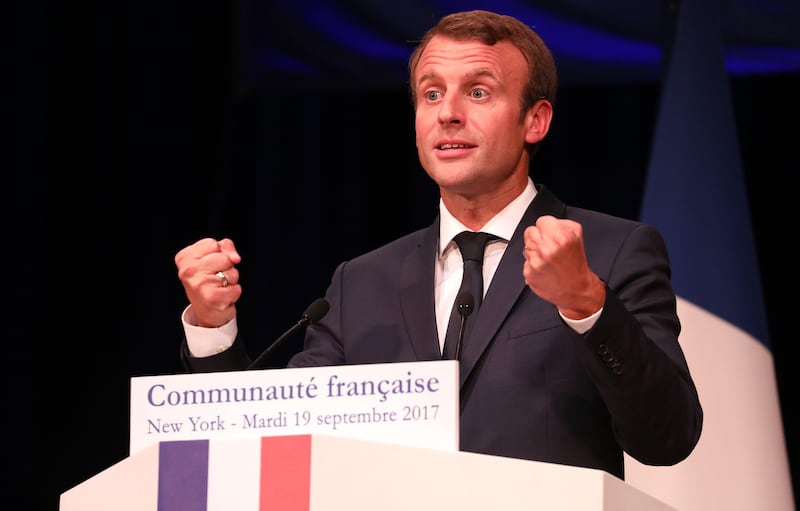French and British leaders are to host social media businesses at a meeting on the sidelines of the United Nations General Assembly today as both countries seek to tackle online radicalisation.
Emmanuel Macron will use a keynote address to warn leading executives of Facebook, Google and Twitter that they face fines and even criminal prosecution if they fail to stop the exploitation of their platforms.
At a summer meeting Macron and British prime minister Theresa May agreed to take a joint approach to combat promotion of extremism and terrorist plotting on the internet. They agreed to launch a campaign targeting the leading names in the industry.
In the wake of London’s Parsons Green pressure cooker attack last week, Mrs May said the social media companies must address radicalisation. The suspect in that attack is a young Syrian refugee who did not travel for bomb training overseas.
“One of the issues that we really need to be addressing, and I'll be raising this when I'm at the United Nations, is the question of the use of the internet by terrorists for terrorist planning,” she told America’s ABC News. “But also this using it for the spread of extremism, of hatred, of propaganda that can incite and can inspire terrorism." .
May will tell delegates: "Terrorist groups are aware that links to their propaganda are being removed more quickly, and are placing a greater emphasis on disseminating content at speed in order to stay ahead.
"'Industry needs to go further and faster in automating the detection and removal of terrorist content online, and developing technological solutions which prevent it being uploaded in the first place.".
It has emerged that her government’s efforts have been stymied after government lawyers failed to establish a “legally robust” definition of extremism that would survive a free speech challenge in the courts.
European officials have held constant talks with the US-based web companies including YouTube, Facebook and Google to do far more to remove suspect content. The social media operators protest they have already adopted an aggressive approach but lack clarity over who is an extremist and the scale to tackle the volume of the posts. Officials have responded with threat to create a new legal liability for technology companies if they fail to remove inflammatory content.
A new report from the leading British think tank Policy Exchange issued earlier this week said groups like ISIL use ‘swarmcast’ tactics to flood the cyber space of sympathisers with a “cohesive and long established theological narrative”.
The study found their groups gained global reach from social media and the ability to target specific users with a range of products. Twitter accounts for some 40 per cent of access to extremist content. The top five countries accessing the material stretched from the Middle East to Europe and the US.
A foreword to the report written by General David Petraeus warned that the battlefield against groups like ISIL and Al Qaeda was shifting to cyberspace. He dismissed the companies claims that there limits on what could be done. “Social media platforms, internet service providers, and other tech companies clearly have central roles to play in the effort to counter extremist groups in cyberspace,” Gen Petraeus, who was head of the CIA and a commander in Iraq and Afghanistan. “Without wishing to understate the difficulties they face, I think it is fair to ask whether their efforts to-date have been commensurate with the scale of the challenge.”
General Petraeus said the social media companies faced a crisis of public confidence as more terror attacks emerge from users who have fallen victim to extremist ideology over the internet.
“Two-thirds of the British people, for example, believe the leading tech companies are not doing enough to combat online radicalisation, and three-quarters of them want those companies to do more to locate and remove extremist content,” he added. “The public expect – and deserve – more from the most powerful and wealthy internet corporations.”
Policy Exchange recommend the government for social media companies to enforce a more stringent code of conduct. It also wants the companies to fund a Counter Terrorism Internet Referral Unit.
It recommends Britain’s new counter extremism commission be given the power to remove content from the internet and laws to allow prosecution of negligent social media executives.







